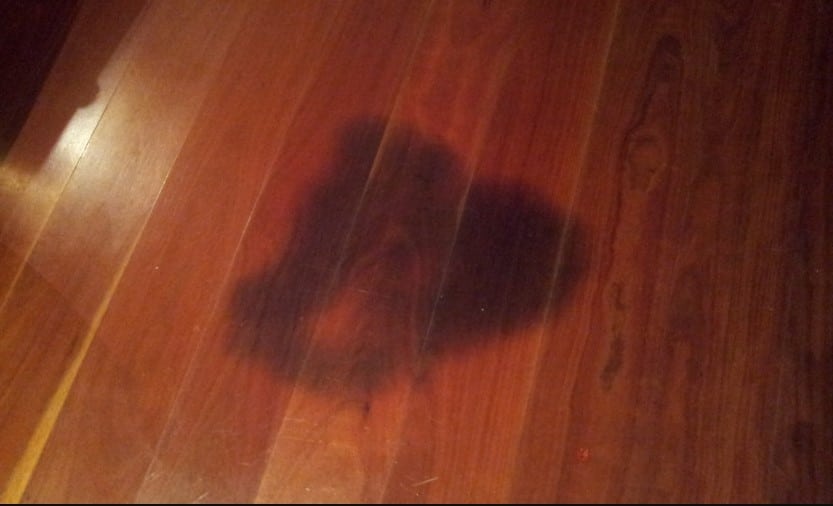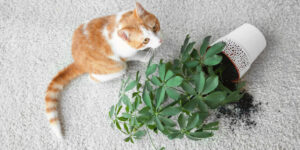
A Comprehensive Guide on How To Remove Black Urine Stains from Hardwood Floors
Introduction
Hardwood floors are a timeless and elegant addition to any home, adding warmth and beauty to living spaces. However, accidents happen, and if your hardwood floors have suffered from pet or human urine stains, you might be concerned about how to effectively remove them. Black urine stains on hardwood floors can be particularly challenging to tackle, but with the right knowledge and techniques, you can restore your floors to their original beauty. In this comprehensive guide, we will explore various methods and provide answers to ten frequently asked questions (FAQs) on how to remove black urine stains from hardwood floors.
1: Understanding Black Urine Stains
1.1 What Causes Black Urine Stains on Hardwood Floors?
Black urine stains on hardwood floors are typically the result of a chemical reaction between the urine and the tannins present in wood. Over time, this reaction can cause dark, unsightly stains that penetrate the wood’s surface.
1.2 Why Is It Important to Remove Black Urine Stains?
Aside from the obvious aesthetic concerns, it’s essential to remove black urine stains from hardwood floors because they can penetrate deeply and lead to permanent damage. If left untreated, the stains may require sanding and refinishing, which can be costly and time-consuming.
2: Cleaning Solutions
2.1 White Vinegar and Water
Ingredients:
- White vinegar
- Warm water
- Microfiber cloth
Steps:
- Mix equal parts of white vinegar and warm water in a spray bottle.
- Spray the solution onto the black urine stain.
- Allow it to sit for a few minutes.
- Gently blot the stain with a microfiber cloth, being careful not to rub vigorously.
- Rinse the area with clean water and dry it thoroughly.
2.2 Hydrogen Peroxide and Baking Soda
Ingredients:
- 3% hydrogen peroxide
- Baking soda
- A soft cloth or sponge
- Plastic wrap
Steps:
- Sprinkle a small amount of baking soda over the black urine stain.
- Pour a small amount of 3% hydrogen peroxide over the baking soda to create a paste.
- Place a piece of plastic wrap over the paste to prevent it from drying out.
- Let it sit for several hours or overnight.
- Remove the plastic wrap and gently wipe away the paste with a soft cloth or sponge.
- Rinse the area with clean water and dry it thoroughly.
2.3 Commercial Stain Removers
There are several commercial hardwood floor stain removers available. Be sure to follow the manufacturer’s instructions carefully when using these products. Always test a small, inconspicuous area of your hardwood floor first to ensure it won’t cause any damage or discoloration.
3: Preventing Future Stains
3.1 Prompt Cleanup
To prevent future urine stains, it’s essential to clean up any spills or accidents promptly. The longer urine sits on the hardwood floor, the more likely it is to penetrate the wood and cause staining.
3.2 Protective Coating
Consider applying a protective coating, such as polyurethane or wax, to your hardwood floors. These coatings can help create a barrier that makes it easier to clean up spills and accidents before they become stains.
3.3 Pet Training
If you have pets, invest time and effort in proper training to minimize accidents on your hardwood floors. Consistent reinforcement of good behavior can go a long way in preventing stains.
Frequently Asked Questions
1: Can black urine stains be removed without sanding and refinishing the entire floor?
In many cases, black urine stains can be removed without resorting to sanding and refinishing. However, it may require patience and persistence, as well as testing different methods to find the most effective one for your specific stain.
2: Can I use bleach to remove black urine stains from hardwood floors?
It’s not recommended to use bleach on hardwood floors, as it can damage the wood and cause discoloration. Stick to the safer methods mentioned in this guide.
3: How can I prevent my pets from urinating on the hardwood floor?
To prevent pet accidents on hardwood floors, ensure your pets have easy access to outdoor areas for bathroom breaks. Consistent training and providing appropriate opportunities for them to relieve themselves outside can help.
4: Will black urine stains eventually fade on their own?
Unfortunately, black urine stains on hardwood floors are unlikely to fade on their own. It’s best to take action to remove them as soon as possible to prevent further damage.
5: Can I use a steam cleaner to remove black urine stains?
Steam cleaning is not recommended for hardwood floors, as excessive moisture can damage the wood and cause warping. Stick to the methods outlined in this guide for safer stain removal.
6: How can I tell if the black stain has penetrated deep into the wood?
You can test the depth of the stain by gently scratching the surface with a coin or your fingernail. If the stain comes off easily, it may not have penetrated deeply. Deeper stains may require more extensive treatment.
7: What should I do if the stain remains after trying various removal methods?
If the stain persists despite your efforts, it’s advisable to consult a professional hardwood floor refinisher. They can assess the damage and recommend the best course of action, which may involve sanding and refinishing.
8: Can I use a vinegar and water solution regularly to clean and prevent black urine stains?
Using a vinegar and water solution for regular cleaning is safe for hardwood floors. However, it’s essential to dilute the vinegar properly and avoid overusing it, as excessive vinegar can damage the finish over time.
9: Can I use a hardwood floor cleaner for black urine stain removal?
Hardwood floor cleaners are formulated to clean and maintain the wood’s finish. While they may not be as effective as specialized stain removers, they can be a safe option for mild stains and regular cleaning.
10: Is it possible to lighten dark stains left by black urine?
Lightening dark stains left by black urine can be challenging. Removing the stains using the methods mentioned earlier may lighten them, but complete removal may not be possible without refinishing the affected area.
Conclusion
Dealing with black urine stains on hardwood floors can be a daunting task, but it’s not insurmountable. With the right cleaning solutions, patience, and preventive measures, you can effectively remove these stains and preserve the beauty and integrity of your hardwood floors. Remember to act promptly, avoid harsh chemicals, and test any method in an inconspicuous area before proceeding. In cases of persistent or extensive staining, professional assistance may be necessary to restore your hardwood floors to their original glory.


